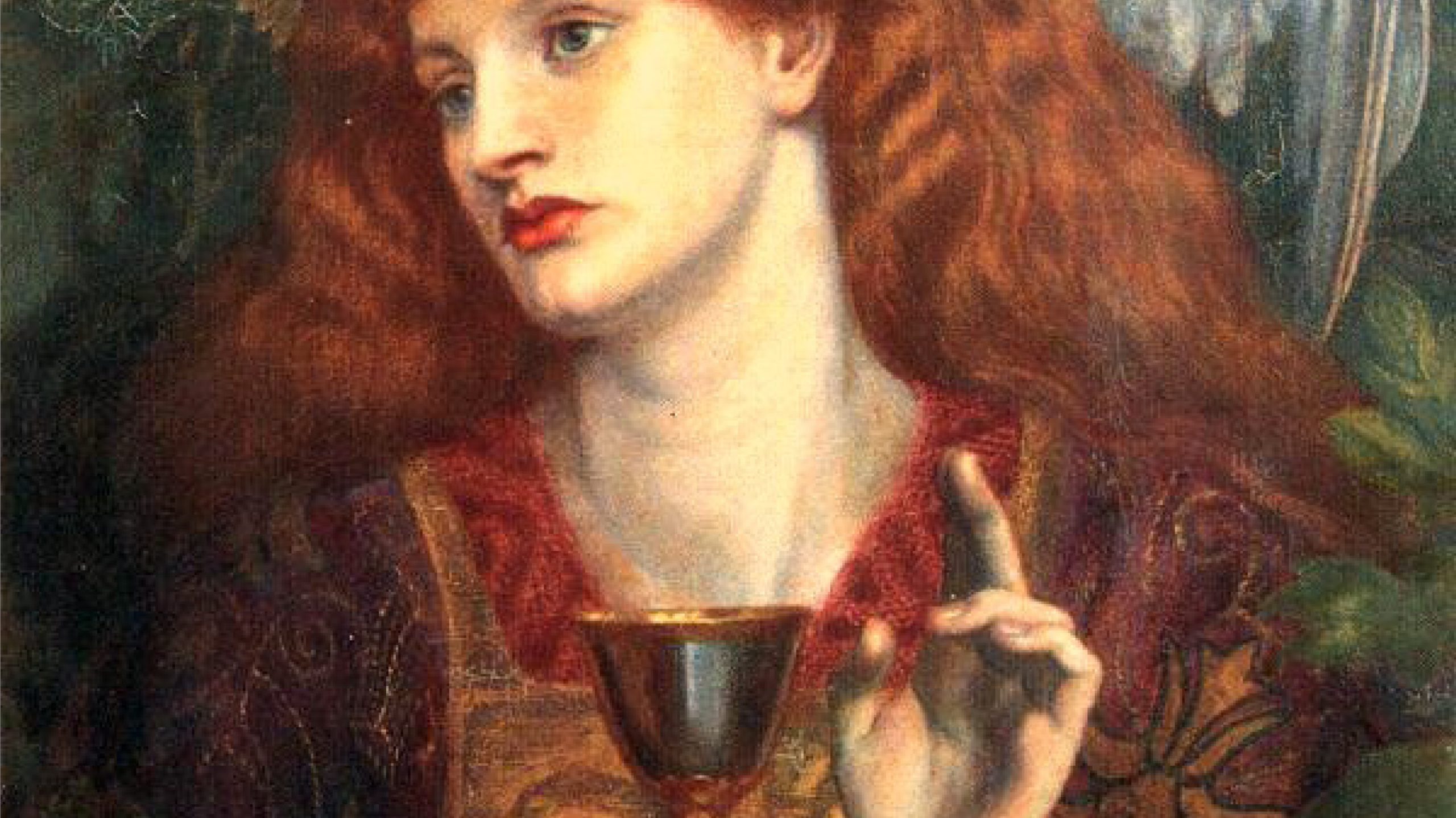The Grail Quest: Myth, Mystery and Romance
Cross-listed with MDVL 301

Dante Gabriel Rossetti, The Damsel of the Sanct Grael (1874).
From Tennyson to Indiana Jones and The Da Vinci Code, much has been written and imagined about the Grail, but the earliest appearances of this mysterious artifact in medieval French literature are sometimes overlooked. This course is an opportunity to return to the great 12th and 13th century romances that first introduced the Grail and helped define it for subsequent generations.
Though the Grail is usually described today as the cup from which Christ drank at the Last Supper, early Grail romances are less clear on the matter. Chrétien de Troyes’ seminal Story of the Grail (c. 1180-1190) never quite explains the nature of the strange artifact that Perceval, a naive young man barely knighted by king Arthur, encounters during his adventures. In seeking to solve the mysteries left by Chrétien’s unfinished tale, however, his continuators and imitators built the Grail into an explicitly Christian relic, in line with the new religiosity of the early 13th century. The anonymous Quest of the Holy Grail (c. 1220) cements this interpretation and displaces Perceval in favour of a new hero, Galaad, a knight so pure and chaste as to be otherworldly: his adventures and those of his companions take place in a heavily allegorical version of the Arthurian world where every encounter has a deeper spiritual meaning.
In addition to these two romances, we will also study three short Welsh texts. Two are drawn from the Mabinogion: the romance of Peredur, which is a loose adaptation of Chrétien’s Story of the Grail, but might reflect earlier versions of the tale; and Branwen, the second branch of the Mabinogi, an early Welsh tale of war, death, rebirth and magic cauldrons, that hints at some of the earliest Celtic beliefs that may have influenced Chrétien’s work. The third, The Spoils of Annwfn, is a cryptic poem that tells of a trip by Arthur and his men to the mysterious Other World.
Throughout this course we will explore the themes of belief, valour, knowledge and fulfillment that unite the different early versions of the tale, despite their canonical divergences. The Grail quest, after all, is rarely about the Grail itself: it’s about self-discovery and finding the true nature of things beyond the veil of appearance.
Language of instruction: English
Instructor: Dr. Patrick Moran
Prerequisites: No prerequisites
Informal recommendation: As this is a 300-level course, it will entail reading, analysis, and independent research. Informal prerequisites: a sense of curiosity and an openness to wonder.
MDVL 301/RMST 321 is typically graded the following way:
Weekly Questions on Reading Assignment (= answer 1 out of a choice of 3 questions/week) – 15% (1.5% per week)
Short Essays – 30% (best mark of 1, 2 or 3 essays available during the term)
Outline of Final Paper – 15%
Final Paper – 40%
Chrétien de Troyes, Arthurian Romances, William W. Kibler & Carleton W. Carroll (trans.), Penguin Classics, 1991
The Quest of the Holy Grail, Pauline M. Matarasso (trans.), Penguin Classics, 1969
The Mabinogion, Sioned Davies (trans.), Oxford World’s Classics, 2008